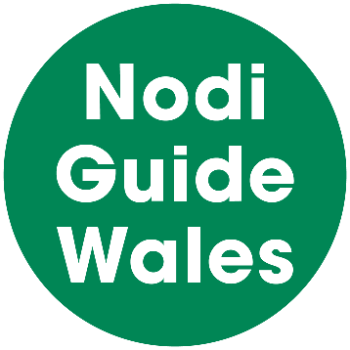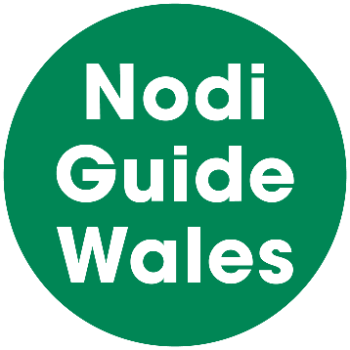This Guide sets out our understanding of the legal framework in Wales relating to the education of those with additional learning needs (ALN). This new legal framework is replacing the former Special Educational Needs (SEN) legal framework. Once fully phased in, this framework will apply to most children and young people being educated in or living in Wales.
Written by Cathrine Grubb, Owain Rhys James, Alys Williams, Isabelle Knight and Crash Wigley, members of the Education Law team at Civitas Law barristers’ chambers with special thanks to David Wolfe KC (Matrix) and Leon Glenister (Landmark), who produce the Noddy No-nonsense Guide to SEN law (in England) for their guidance and editorial input. For full author details see their profiles on this site.
The Guide aims to bring together the relevant legal provisions, the codes of practice, Government guidance and case law. To make it more accessible for those without a legal/judicial background, we have where appropriate opted for plain English over the exact statutory wording. Therefore it is important to remember that this Guide is not intended to be a complete substitute for direct consideration of the legal materials or relevant statutory code.
The Guide will be regularly updated as a free public resource to assist all those who are involved in ALN law. Any comments on it will inform the updates.
The Civitas Education Law team is composed of highly skilled and experienced lawyers who offer comprehensive legal services covering all areas of Education Law. Their diverse expertise ensures they can handle cases at all levels, from local disputes to high-profile judicial reviews and appellate work. Each member brings a unique skill set that strengthens the team as a whole, creating a cohesive unit capable of delivering exceptional results for their clients.
Civitas Chambers: https://www.civitaslaw.com/barrister-expertise/education
Questions [251]
Questions they have asked
-
01.01 What is the legal framework for additional learning needs in Wales?
-
01.02 What are the main differences between the framework under ALNET and the previous framework in Wales?
-
01.03 Legislation in Wales is drafted bilingually. How should it be interpreted?
-
01.04 Why does the Nodi Guide refer to the Education Act 1996 and Children and Families Act 2014 and cases decided under those Acts, when Wales has moved from an SEN system to an ALN system?
-
01.05 What is the ALN Code 2021?
-
01.06 Is the ALN Code binding on schools and local authorities?
-
01.07 Which children and young people are covered by the ALN system?
-
01.08 What is the UNCRC?
-
01.09 What is the RCYP 2011?
-
01.10 What is the UNCRPD?
-
01.11 What is meant by the duty to have “due regard” to the UNCRC and UNCRPD under ALNET?
-
01.12 Does the LA need to take extra steps to have “due regard” under the Public Sector Equality Duty under s.149 Equality Act 2010 when delivering ALN in an IDP?
-
01.13 Does the socio-economic duty in s.1 of the Equality Act 2010 impact what LA has to do?
-
01.14 Does the legal framework under ALNET operate in a vacuum?
-
01.15 Does the Human Rights Act 1998 have any additional relevance?
-
02.01 What are Additional Learning Needs (ALN)?
-
02.02 What is Additional Learning Provision (ALP)?
-
02.03 What is an IDP?
-
02.04 Do all CYP with ALN have an IDP?
-
02.05 Are there still other categories of intervention for those on the new system such as: “school/early years action”, “school/early years action plus”, “learning skills plans”; “monitored” or “targeted monitored” ALN.
Answers [251]
Questions they have answered
-
01.01 What is the legal framework for additional learning needs in Wales?
-
01.02 What are the main differences between the framework under ALNET and the previous framework in Wales?
-
01.03 Legislation in Wales is drafted bilingually. How should it be interpreted?
-
01.04 Why does the Nodi Guide refer to the Education Act 1996 and Children and Families Act 2014 and cases decided under those Acts, when Wales has moved from an SEN system to an ALN system?
-
01.05 What is the ALN Code 2021?
-
01.06 Is the ALN Code binding on schools and local authorities?
-
01.07 Which children and young people are covered by the ALN system?
-
01.08 What is the UNCRC?
-
01.09 What is the RCYP 2011?
-
01.10 What is the UNCRPD?
-
01.11 What is meant by the duty to have “due regard” to the UNCRC and UNCRPD under ALNET?
-
01.12 Does the LA need to take extra steps to have “due regard” under the Public Sector Equality Duty under s.149 Equality Act 2010 when delivering ALN in an IDP?
-
01.13 Does the socio-economic duty in s.1 of the Equality Act 2010 impact what LA has to do?
-
01.14 Does the legal framework under ALNET operate in a vacuum?
-
01.15 Does the Human Rights Act 1998 have any additional relevance?
-
02.01 What are Additional Learning Needs (ALN)?
-
02.02 What is Additional Learning Provision (ALP)?
-
02.03 What is an IDP?
-
02.04 Do all CYP with ALN have an IDP?
-
02.05 Are there still other categories of intervention for those on the new system such as: “school/early years action”, “school/early years action plus”, “learning skills plans”; “monitored” or “targeted monitored” ALN.


